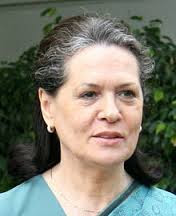Almost 42 years after Bangladesh liberation war, a sense of justice appears dawning upon collective wound consciousness of 160 million people. The International Crimes Tribunal has sentenced heads of Jamaat-e-Islami, Ali Ahsan Mohammad Mojaheed with death and Ghulam Azam to 90 years in jail, for crimes against humanity for their respective roles during 1971 war of Independence. The judicial balm should help the young nation to come to terms with blood-letting of unimaginable scale in months preceding Independence.
Indeed, soils of South Asia found no difference between blood and water, after British succumbed to treacherous two nation theory of Muslim League leader Muhammad Ali Jinnah. But within 24 years, the world realized that religions hardly make for nations, after people in East Pakistan rose to assert their cultural and linguistic identity.
For nine months till Bangladesh was born on December 16, 1971, brutal suppression by Pakistani army and their local Islamist collaborators accounted for three million deaths, two lakh rapes of women and exodus of 10 million people to India. And so, Judges of the trial tribunal termed the suppression worst genocide after World War-II. A few of them also called Pakistani army and their local collaborators worse than Adolf Hitler.
So, the tribunal, most appropriately, awarded death penalty to 65-year-old Jamaat-e-Islami secretary general Ali Ahsan Mohammad Mojaheed. Few days ago, the tribunal sentenced head of the Islamist group, 91-year-old Ghulam Azam, to 90 years in jail. Earlier, tribunal in its first verdict in January this year had awarded death sentence to former Jamaat leader Abul Kalam Azad, while another convict Abdul Quader Mollah was given life term. Furthermore, the tribunal awarded death sentences to vice-president of Jamaat, Delwar Hossain Sayedee, and fundamentalist preacher Muhammad Quamaruzzaman.
Even though Jamaat is making spirited efforts to shut down Dhaka and other cities, its leaders were indisputably
convicted for crime against humanity. The convicts had led Al Badr militia, consisting of student wings of Jamaat, and most dreadfully eliminated top Bengali intelligentsia, including journalist Sirajuddin Hossain, famous musician Altaf Mahmud and freedom fighter Rumi. Worse, they were convicted for persecution of minority Hindu also. By all accounts, Al Badr had acted as an auxiliary wing of the Pakistani army.
Arguably, sentencing of war crime convicts is not just bringing a few individuals to justice alone. As is true for a young nation, history and politics quite easily intermingle in Bangladesh. Also true is the fact those nine months long liberation war was led and fought by those who swore by secular beliefs. But the short and turbulent history of Bangladesh witnessed military coups on the way. And in a parallel to Islamisation unveiled by Pakistani dictator Zia ul Haque, Bangladesh too saw phases of liberal society challenged by religious hardliners. And now Jamaat is trying to portray war crime trials as a threat to Islam.
Additionally, main opposition Bangladesh National Party led by Khalida Zia, though secular in orientation, banks on Jamaat for political gains. And for obvious reasons, she has questioned fairness and quality of war crime trials. But it’s also true that ruling party, Awami League led by Prime Minister Sheikh Hasina, had sought people’s mandate in 2008 elections to prosecute war crime accused. She got massive popular support and came to power with two-third majority. Fulfilling the commitment, she formed the tribunal in 2010.
While some experts would like to see Dhaka events as fallout of the fight of two Begums – Sheikh Hasina, daughter of founder of the nation, Sheikh Mujib-ur-Rehman, and Khalida Zia, widow of the first military ruler, Zia-ur-Rahman. The election in Bangladesh is due early next year. So, Hasina would like others to believe that the trial is nothing but an attempt to divert attention from failures of the incumbent government. However, it can’t be denied that the war crime trial is part of the larger nation building process. The pulse of the people could be seen at Shahbag Square where youth of Bangladesh have demanded highest punishment to war crime convicts.
Though events taking place in Dhaka are clearly internal matters of Bangladesh, India needs to be watchful. The attempt of Islamists to use violence as the means to silence liberal voice in Bangladesh could have spill over effects. India must keep a hawk’s eye on any chances of emergence of Jihadi base in its immediate neighbourhood.







